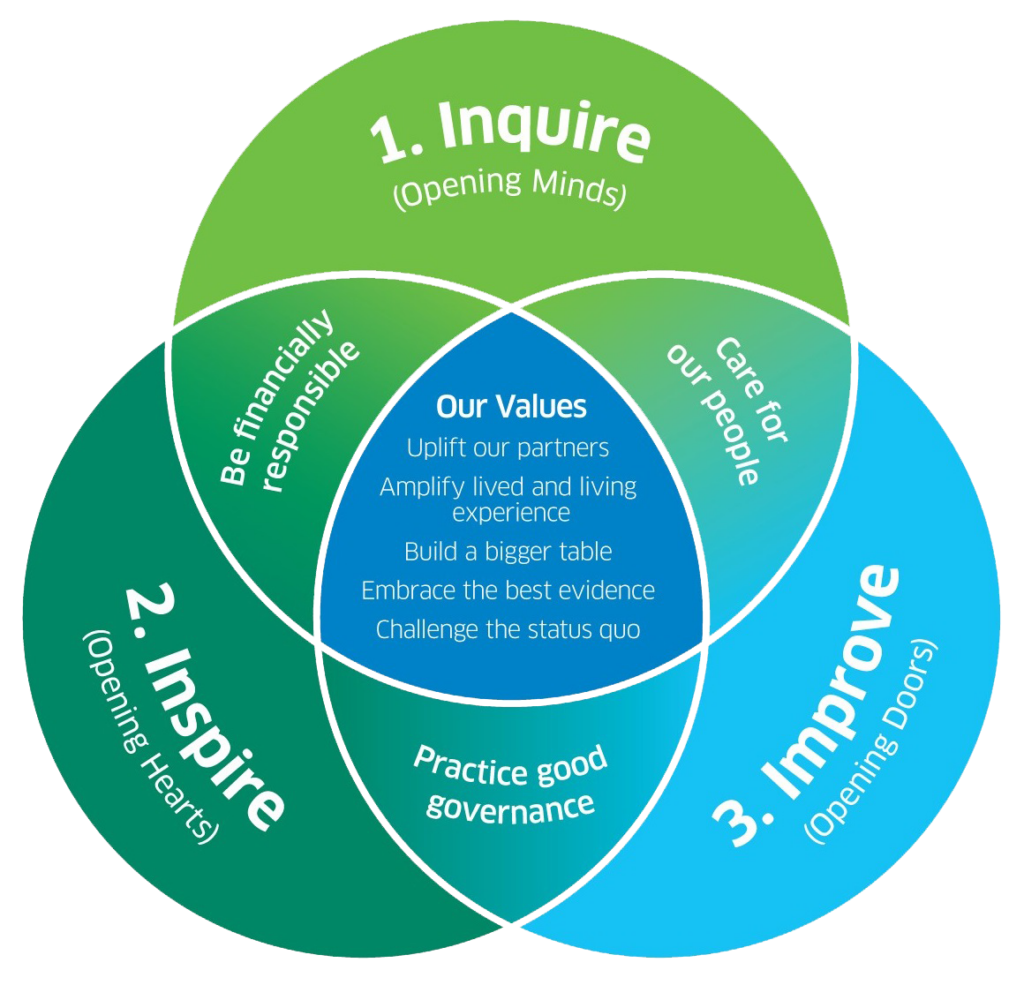
1.1 – Identify what works to erase the duplication of effort and multiply the impact of innovation.
Doing so means researching leading practices (in Canada and around the world) while developing, delivering, and evaluating scalable solutions. Piggybacking on current innovations allows us to shorten the lag time between knowing and doing.
1.2 – Drive system transformation through the development of meaningful mental health measures.
We can’t count what we don’t measure, and too often what isn’t measured doesn’t count.


